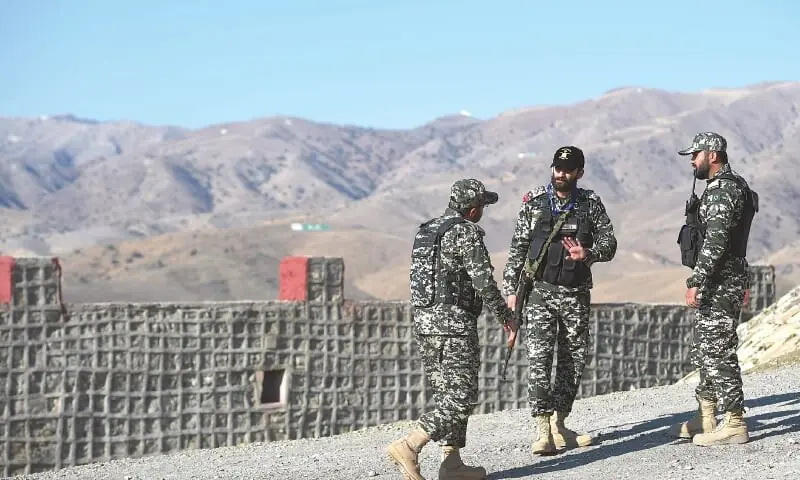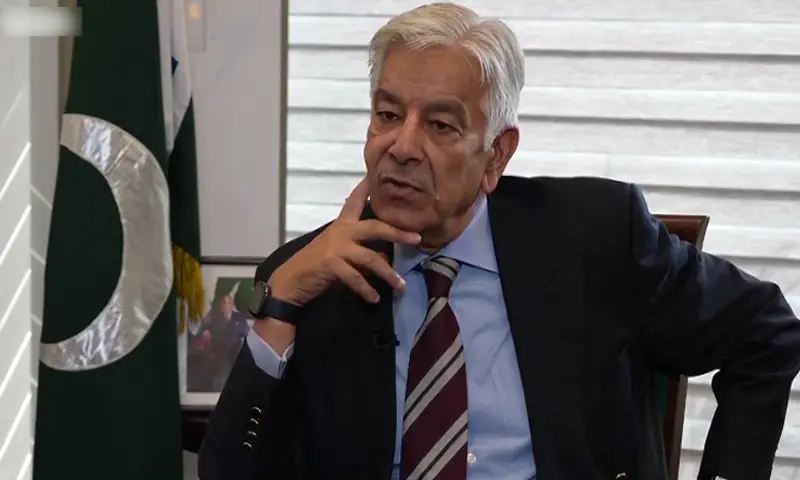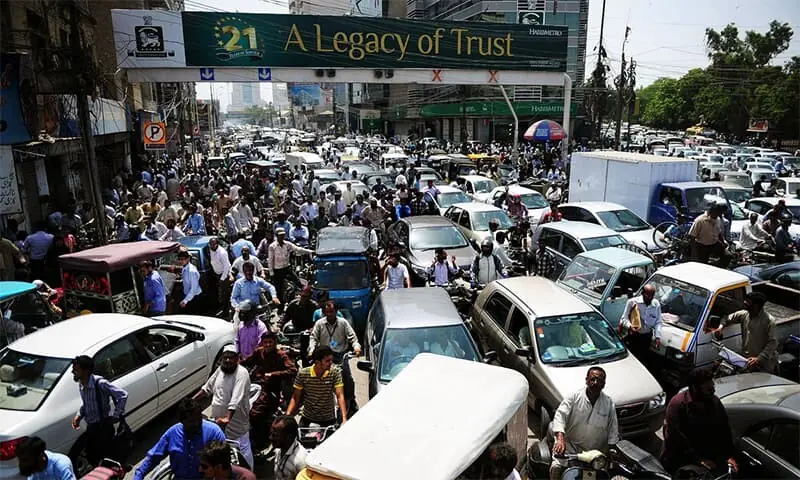Defense Minister Khawaja Asif said on Tuesday that a deal with Afghanistan was close to being reached, but Afghan negotiators backed out after contacting Kabul during negotiations.
A second round of talks between both sides began in Istanbul on Saturday.
The Qatar talks came after days of fighting along the Pakistan-Afghanistan border and Islamabad’s attacks on Gul Bahadur group camps in Afghanistan. The agreement reached in Doha extended an initial 48-hour truce and resulted in a temporary ceasefire, as well as a commitment to meet again in Istanbul to work on mechanisms for lasting peace and stability between the two countries.
speaking in Geographic news In the ‘Aaj Shahzeb Khanzada ke Saath’ programme, the Defense Minister claimed that negotiators had backtracked on a deal “four or five times” after receiving instructions from Kabul.
“Every time we got closer to an agreement – whether in the last four days or last week – when the negotiators reported to Kabul, then there was intervention and the agreement was withdrawn,” he outlined.
“I think the negotiations were sabotaged. We had an agreement, but then they called Kabul and backtracked on the agreement.”
Asif congratulated the Afghan negotiators, stating that “they cooperated and gave us a tough negotiation. It was a great test.”
“I would congratulate your delegation, but the people in Kabul pulling the strings and organizing the puppet show are controlled by Delhi,” he added.
The defense minister believed that the Kabul government lacked authority as it had been “penetrated” by India, which was using Afghanistan to stage a proxy war against Islamabad.
“India is making up for its defeat on its western border through Kabul. The junta there (in Afghanistan) has elements who have visited India and visited its temples,” Asif said. “India wants to engage in a low-intensity war with Pakistan. To achieve this, they are using Kabul.”
When asked to comment on Afghanistan’s threats to “attack Islamabad” in case of fresh hostilities, Asif replied: “If Afghanistan even looks at Islamabad, we will gouge their eyes out.
“They can employ the use of terrorists and they are already doing so. For the last four years, they have been using terrorists,” he added.
“There should be no doubt that Kabul is responsible for terrorism in Pakistan. Kabul is a tool for Delhi. If they want, God forbid, to attack Islamabad, we will give them a befitting response. A 50 times stronger response,” the Defense Minister said.
last effort
Earlier today, security sources claimed that a last-ditch effort is underway to salvage the ongoing talks between Islamabad and Kabul, despite the “stubbornness” of the Afghan Taliban.
“On the third day, talks continued for 18 hours. During the 18 hours, the Afghan Taliban delegation repeatedly accepted Pakistan’s logical and legitimate demand for credible and decisive action against the TTP (Tehreek-i-Taliban Pakistan) and terrorism,” a well-placed security source said.
They added that although the Afghan delegation recognized the central issue, its position changed due to “instructions received from Kabul.”
Security sources described the “illogical and illegal advice received from Kabul” as responsible for the “failure of the talks.” They stated that Pakistan and the hosts wanted to resolve the “complex issues in a very thoughtful and serious manner.”
“A last-ditch effort is still underway, despite the Taliban’s stubbornness, to somehow resolve this issue through logic and talks, and the talks are moving towards a final round,” the security official said.
Earlier, sources familiar with the closed-door discussions said that while “most points had been mutually agreed between the two sides,” the verifiable mechanism of action against terrorist groups operating from Afghan territory, particularly the outlawed TTP, remained the main sticking point.
The mood yesterday had been markedly positive, with participants describing “encouraging progress” and “serious commitment” from both delegations.
However, as night fell, it seemed that the process had once again hit a roadblock. According to participants, the Afghan Taliban delegation continued to resist putting anything in writing, especially on the issue of providing verifiable guarantees to end support for the TTP.
“We still hope to be able to sign a mutual document with Afghanistan soon, followed by a joint statement, but it is still out of reach,” a source said yesterday.
“The hosts understand Pakistan’s concerns,” said a Pakistani official, “but the people of Kabul and Kandahar are not willing to compromise.”
“It’s a difficult phase,” another source admitted, reflecting the growing sense of frustration within the room as the stalemate persisted.
“The Afghan side has made it clear that tensions do not benefit anyone,” said a member of the delegation. “We are hopeful that these talks will produce a positive outcome.”
Mediators from Turkiye and Qatar were said to share this sentiment. “Even if the talks did not produce any progress, the fact that both sides stayed engaged for three days in a row is important,” said one mediator. “This shows that neither of them wants the process to collapse.”
Monday’s tone contrasted with the pessimism that followed Sunday’s nine-hour discussions, when Pakistani officials said Islamabad had presented its final position to the Taliban delegation. “Pakistan has made it clear that the current sponsorship of terrorists by the Afghan Taliban is unacceptable,” a senior security official had said.








